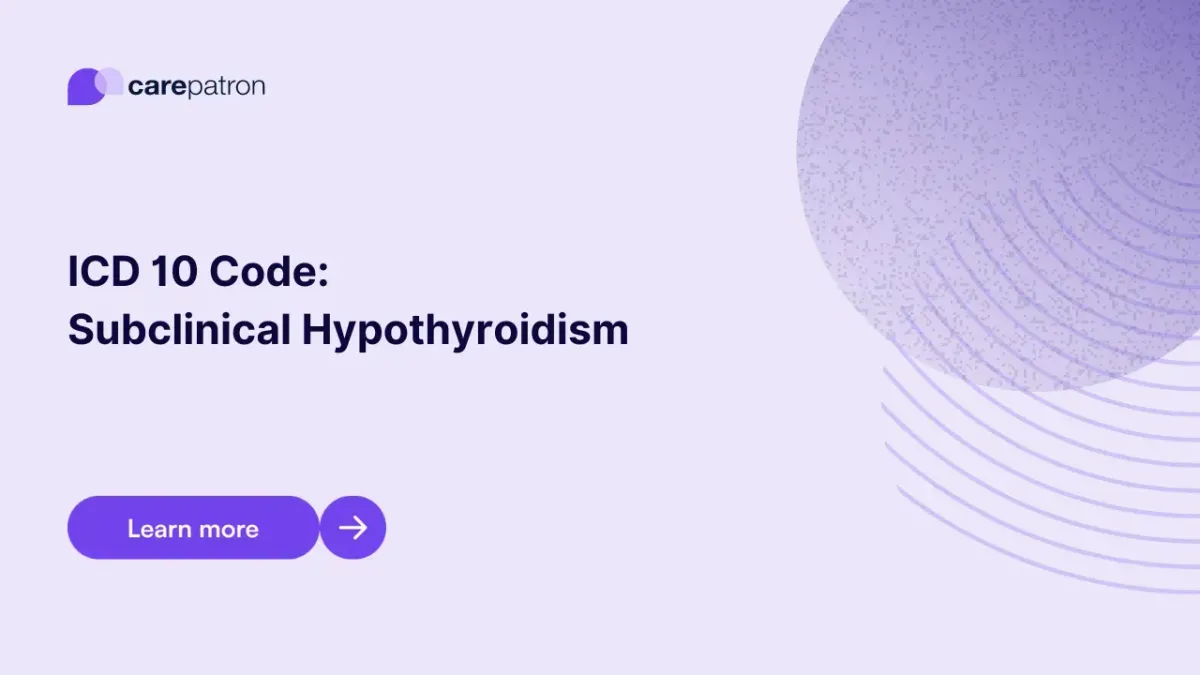
Subclinical Hypothyroidism ICD-10-CM Codes | 2025
Explore ICD-10 codes for Subclinical Hypothyroidism, including E02 and E03.5. Learn about causes, diagnosis, symptoms, and billing for thyroid dysfunction.
Use Code
Commonly asked questions
Subclinical hypothyroidism is often caused by autoimmune disorders such as Hashimoto’s thyroiditis, iodine deficiency, or previous thyroid surgery or radiation. It may also result from medications, other exogenous substances, or postinfectious hypothyroidism, affecting the thyroid gland.
Healthcare providers diagnose subclinical hypothyroidism through blood tests showing elevated thyroid-stimulating hormone (TSH) levels with normal free T3 and T4 levels. They may also evaluate patient history and screen for underlying metabolic diseases, autoimmune disorders, or deficiency-related thyroid conditions.
Treatment depends on the severity and underlying cause, but it often includes regular monitoring or low-dose thyroid hormone replacement therapy. In cases linked to iodine deficiency, dietary changes or supplementation may be recommended to restore proper thyroid function.
EHR and practice management software
Get started for free
*No credit card required
Free
$0/usd
Unlimited clients
Telehealth
1GB of storage
Client portal text
Automated billing and online payments
